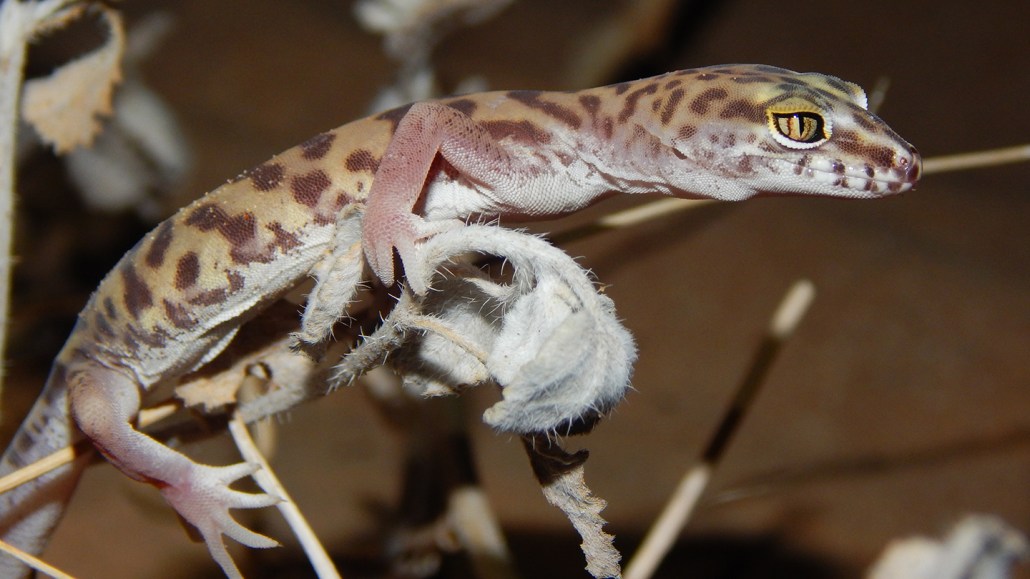Watch how a western banded gecko takes down a scorpion
These lizards violently shake their venomous prey into submission

Western banded geckos, like the one shown here, aren’t known as fearsome predators. But these lizards sometimes feast on scorpions.
SDSU Clark Lab
Share this:
- Share via email (Opens in new window) Email
- Click to share on Facebook (Opens in new window) Facebook
- Click to share on X (Opens in new window) X
- Click to share on Pinterest (Opens in new window) Pinterest
- Click to share on Reddit (Opens in new window) Reddit
- Share to Google Classroom (Opens in new window) Google Classroom
- Click to print (Opens in new window) Print
Never underestimate a western banded gecko. These small lizards don’t look like they’d win in a fight. But new videos reveal how these unassuming creatures make a meal out of venomous scorpions. Researchers shared footage of the showdowns in the March Biological Journal of the Linnean Society.
To take down scorpions, western banded geckos (Coleonyx variegatus) fight dirty. One of these lizards will bite a scorpion, then thrash its head and upper body back and forth. This assault body-slams the scorpion against the ground.
“The behavior is so fast that you can’t see what’s actually happening,” says Rulon Clark. He’s a biologist at San Diego State University in California. “[You] see the gecko lunge and then see this crazy blur of motion.” He likens it to “trying to watch the wings of a hummingbird.” Clark’s team had to use high-speed videos to get the play-by-play.
Clark first noticed geckos attacking scorpions in the 1990s. Back then, he was doing fieldwork in the Sonoran Desert near Yuma, Ariz. Later, Clark returned with colleagues to study kangaroo rats and rattlesnakes. The team took the opportunity to also film desert geckos at night. Cameras captured showdowns between western banded geckos and dune scorpions (Smeringurus mesaensis). Clark’s group also filmed geckos snarfing up harmless critters. Those snacks included field crickets and sand roaches. This revealed how geckos behaved toward less fearsome prey.
To feed, geckos normally lunge out and chomp down on their prey, says Clark. With scorpions, after that first lunge it’s totally different. Their strategy of whipping scorpions back and forth is not unique. Some other carnivores shake their food like this, too. For instance, dolphins shake (and toss) octopuses around before eating them.
But it was surprising to see such behavior from western banded geckos. These delicate, cold-blooded animals are not known for speed. That they can thrash around so quickly and violently is impressive, Clark says. Videos show geckos whipping back and forth 14 times per second!
Whiptail lizards also violently shake scorpions. Their shaking speed is unknown. Similar behavior is seen in songbirds called loggerhead shrikes. Those birds sling larger predators in circles 11 times per second. The closest known match to geckos’ shaking speed is small mammals shaking themselves dry. Guinea pigs clock in at around 14 shakes per second.
It’s unclear how often geckos feast on scorpions. Also unknown: How often do geckos kill the scorpion before swallowing it? Does the gecko damage its foe’s stinger? Does all of that thrashing reduce the amount of venom a scorpion can inject if it manages to stick the gecko? These finer details remain mysteries.






